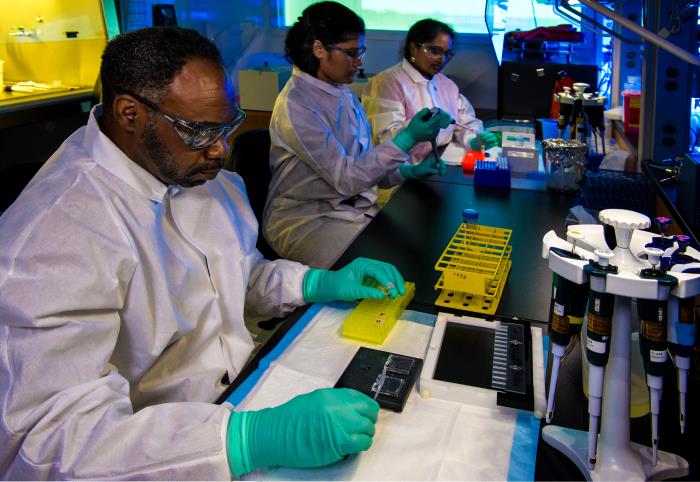
Viral diseases pose a significant threat to both Soldiers and the public at large. Especially in training and field environments, Soldiers live and work in close proximity, allowing pathogens to spread with ease. Some diseases are commonplace at home station, like influenza; others, like dengue, are prevalent where Soldiers deploy. Emerging viruses like SARS-CoV-2 can spread rapidly throughout the world, causing significant morbidity as health systems learn how to address them. To identify and understand these pathogens, WRAIR E-ME conducts viral surveillance in the U.S. European Command area of responsibility to inform EUCOM force health protection and conduct hypothesis-driven research and clinical studies.
WRAIR E-ME maintains a full service virology laboratory that performs molecular PCR analysis, sequencing, viral culture and serology on viral infectious disease pathogens that pose significant risks to the Warfighter and public health, focusing on SARS-CoV-2, influenza, tick-borne encephalitis virus and adenovirus in particular. The laboratory conducts innovative scientific research on viral agents at a biosafety level-2. Research studies focus on vector-reservoir transmission, viral ecology, pathogenesis, pathophysiology and host immune response of these viral pathogens. In partnership with the
Walter Reed Army Institute of Research, WRAIR E-ME will soon be able to safely determine viral antibody titers against TBEV in a BSL-2 laboratory.